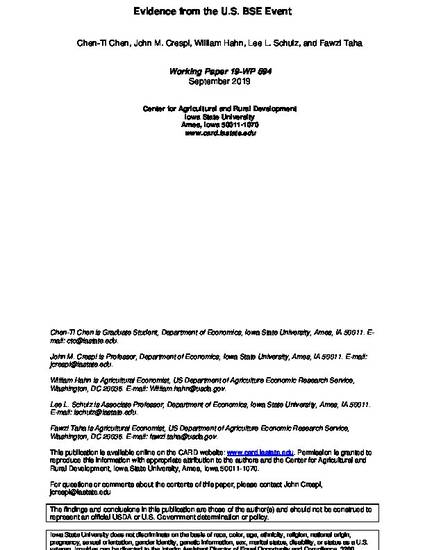
Article
Long-Run Impacts of Trade Shocks and Export Competitiveness: Evidence from the U.S. BSE Event
CARD Working Papers
Publication Date
9-1-2019
Series Number
19-WP 594
Abstract
This paper examines how comparative advantages of major beef exporters changed following the 2003 bovine spongiform encephalopathy outbreak (BSE), which significantly disrupted the U.S. beef trade until approximately April 2007. Using longitudinal data on beef export values and constructed revealed comparative advantage measures, we show that while some measure of the long-run impacts of BSE on U.S. beef export competitiveness have returned to pre-2003 levels, the U.S.'s comparative advantage has not. We also examine a hypothetical scenario of no BSE event in 2003 and predict what exporters' competitiveness would have looked like. The authors discuss the implications for recent trade disruptions.
Disciplines
Citation Information
Chen-Ti Chen, John M. Crespi, William Hahn, Lee L Schulz, et al.. "Long-Run Impacts of Trade Shocks and Export Competitiveness: Evidence from the U.S. BSE Event" (2019) Available at: http://works.bepress.com/john-crespi/25/
